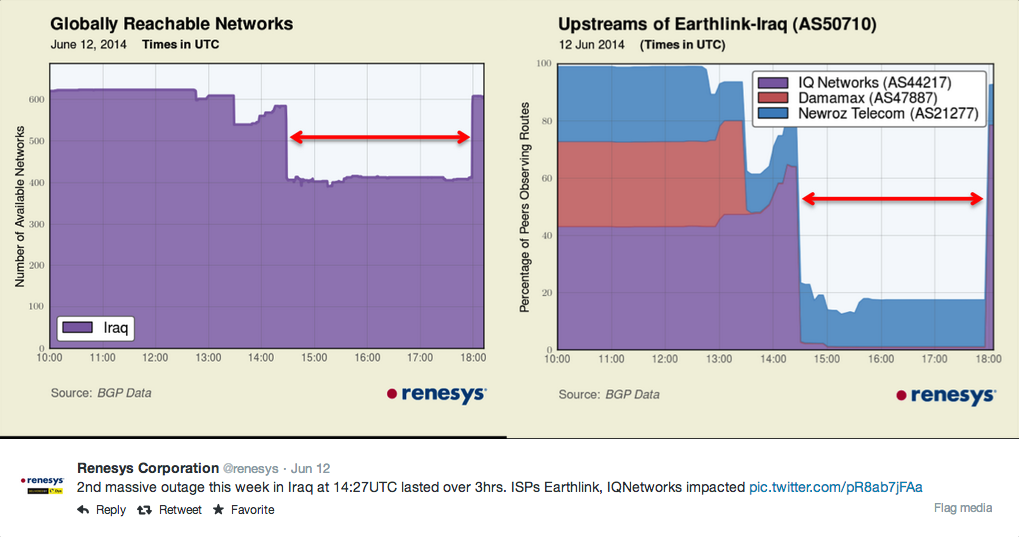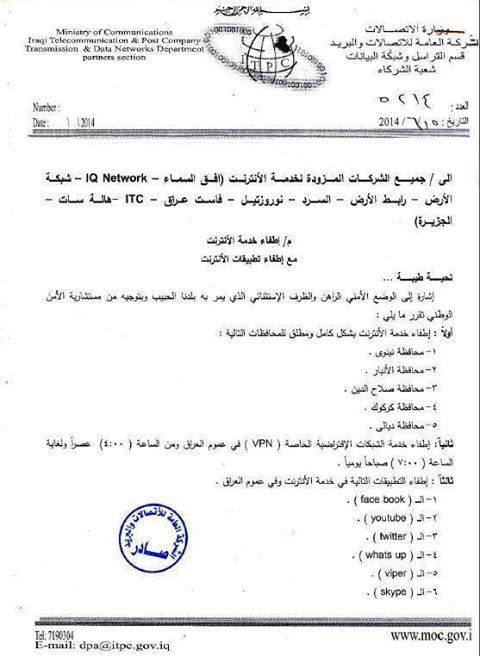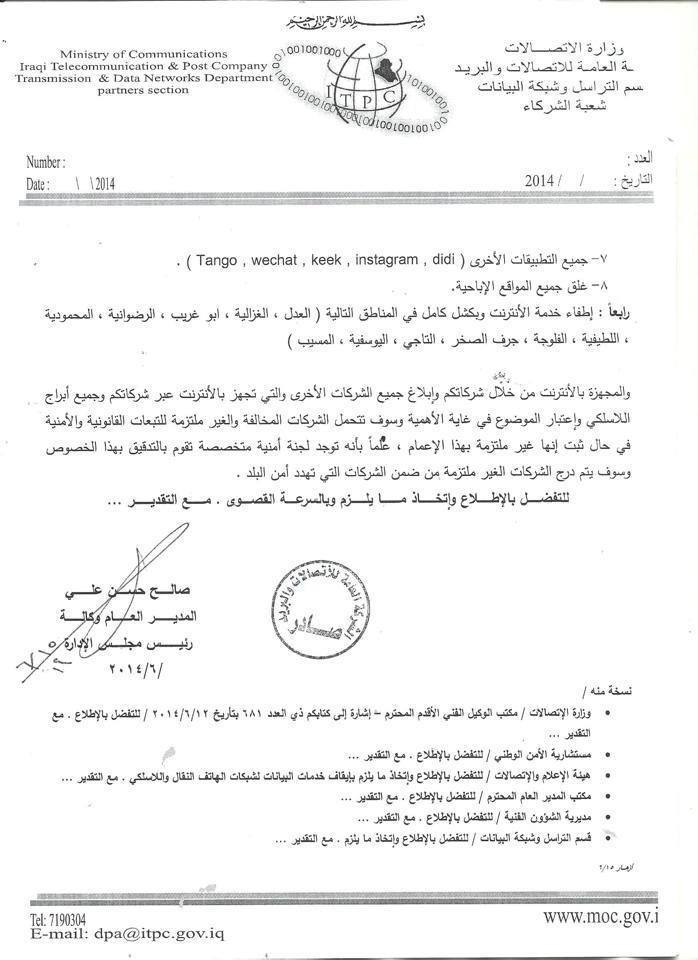Iraqi government shuts down Internet access in five provinces
As violence spreads across Iraq, the government has moved to curb Internet access around the country.
Iraq’s Ministry of Communication issued orders Sunday for a total Internet shutdown in five of the country’s western and central provinces, where violence from a Sunni insurgency led by the Islamic State of Iraq and Syria (ISIS) is particularly intense.
This comes two days after access to Twitter, Facebook, and Youtube as well as communication platforms like Skype, Whatsapp, and Viber was cut across the nation. The government issued the shutdown order to ISPs, asking providers to “shut down the Internet totally,” according to a leaked copy of the ministry’s memo, which Arab citizen media organization Social Media Exchange printed and translated.
The move mirrors other Internet shutdowns in the region. Days after protests broke out in Tahrir Square in early 2011, then–Egyptian President Hosni Mubarak ordered a shutdown that blocked web access in 88% of the country. In Syria, blocks of media sites like YouTube and Facebook were followed by a total Internet shutdown widely credited to President Bashar al-Assad’s regime.
The shutdown may be difficult for the Maliki government to carry out, as Iraq’s market for ISPs is unusually fragmented. There are hundreds of providers across the country, some of which offer service via satellite, limiting potential government control. By comparison, just 10 ISPs were responsible for 69% of web traffic in the US in 2011, according to digital analytics company comScore.
Still, web traffic originating in Iraq has been markedly reduced since the government ordered the access cuts. Renesys, which tracks Internet connectivity, observed two major, hours-long outages before the regional shutdown, first on June 9 and again on June 12, both of which were confirmed by sources as government-sponsored.

The militant group ISIS may be particularly adept at using social media platforms like Twitter and Facebook to broadcast its message and recruit new followers. The Atlantic’s JM Berger reports that the group has made use of a Twitter app called The Dawn of Glad Tidings, which it uses to disperse news and spread messaging via posts to users’ accounts on their behalf. ISIS used Twitter over the weekend to share pictures allegedly depicting the mass execution of Iraqi security forces in Tikrit. The Atlantic reports that there has been a dramatic increase in posts on the ISIS app since its introduction in April, reaching 40,000 in a single day as ISIS marched into Mosul last week—a volume that pushed its posts to the top of results for queries like “Baghdad.” Tikrit and Mosul, the nation’s second-largest city, are both located in states whose web access has been cut.
 Shared by @_3lawi, via Social Media Exchange.
Shared by @_3lawi, via Social Media Exchange.
 Shared by @_3lawi, via Social Media Exchange.
Shared by @_3lawi, via Social Media Exchange.